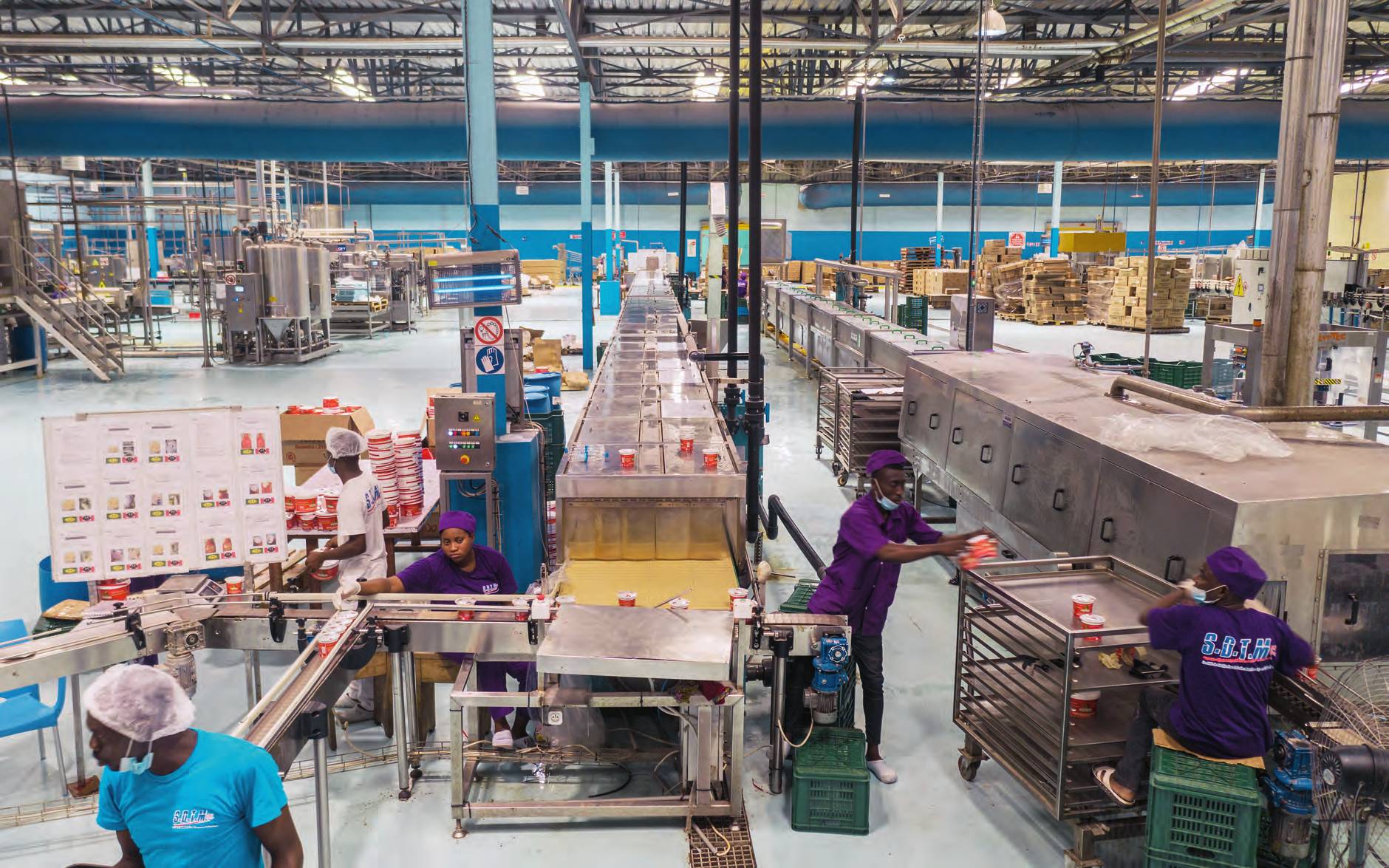Private sector : A national priority

Businesses and entrepreneurs will play a central role in the structural transformation of the economy.
The General Confederation of Côte d'Ivoire Companies (CGECI) considers the private sector to be a determining factor in the national economy. It accounts for two-thirds of total investment and 83% of formal employment and contributes 90% of the state's budgetary resources. However, due to the impact of the Covid-19 health crisis, almost 38% of these companies have seen a slowdown in their activities and 2.5% of them have closed down. Yet, despite this, the sector has been surprisingly resilient. The country's growth rate remained positive at around 2% in 2020. This performance is partly due to the government's ability to support companies using a number of instruments, including the Support Fund for Large Companies, the Fund for Small and Medium-sized Enterprises (SMEs), and the Informal Sector Support Fund. More than 830 companies and 114,000 players have benefited from this support. Given the performance of the private sector and, above all, its crucial contribution to the economy, the government intends to make it a national cause, promising it massive support, mainly through a plan to strengthen the partnership, estimated at 59,000 billion CFA francs, as laid out in the 2021-2025 National Development Plan. This private sector support plan provides for an increased investment of 75% in SMEs. “There is no other way to ensure that the private sector can move forward at the speed that the state would like; we have to create an extremely close partnership that allows some to support the others,” said Prime Minister Patrick Achi on 25 October at the offices of the Prime Minister. This dynamic was set in motion when his team brought together private sector stakeholders to voice their concerns during the April 2021 government seminar, an initiative greatly welcomed by the guests, as it was a first in the country.
Selecting local businesses
Major reforms were announced during the 9th edition of the CGECI Academy, which was held on 28 and 29 October at the Sofitel Abidjan Hôtel Ivoire. They focus, among other things, on the National Champions programme, the aim of which is to identify and rigorously select local players so as to enable the emergence of high-potential companies. The objective is to create business ecosystems in promising sectors such as agribusiness, energy, transport, tourism, textiles, etc. “The solution is to develop the private sector, which is the main source of employment. If we don’t do what we can to develop it, we won’t have sufficient revenue,” said the Prime Minister at the event. “We will soon be launching a support and financing programme for entrepreneurs, VSEs and SMEs, structured around a one-stop service capable of offering a central entry point to anyone setting up a business, by coordinating a continuum of services and financing for the activity.” Jean-Marie Ackah, president of the CGECI, welcomed the government's commitment to consolidating the state-private sector partnership on 4 November, saying: “We have just had, in the space of 10 days, a second working session with the Prime Minister and members of the government. We’re very satisfied with the roadmap that has been established.”
Fostering professional integration
Given that the private sector is the main provider of salaried jobs, the government has given it pride of place. It is even considered a national priority in the President's Vision 2030. The objective is to create 8 million additional jobs by that date, mainly for the flood of young people who enter the market each year. Furthermore, the government has included wealth and job creation in Alassane Ouattara's “Une Côte d'Ivoire Solidaire” programme. In this way, industries such as the processing of raw materials (cocoa, cashew nuts, cotton, etc.) will be utilised for professional integration.